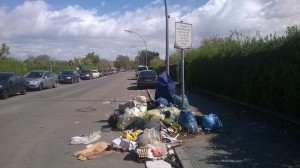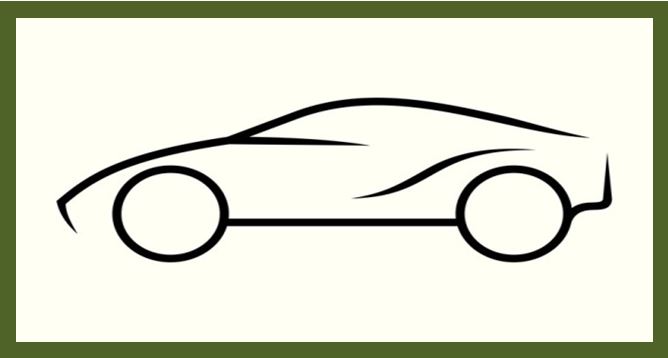…und die Neujahrsansprache des Bundeskanzlers interessiert Sie nicht besonders, weil Sie andere Sorgen haben.
„Stell dir vor, es ist der 31.12.2026, 20:30 Uhr…“ weiterlesenThe German economy in January 2026 – not only the weekend is nigh…
…yet also the month’s end. Hence, at the last hour, let’s go for the JANUARY details of the German economy:
„The German economy in January 2026 – not only the weekend is nigh…“ weiterlesenPopulismus, Wirtschaft und Medien
In einem sehr lesenswerten Artikel (diesmal fürs Manager Magazin) erklärt Henrik Müller die Gründe für den wiederholten wirtschaftlichen Absturz Argentiniens vor allen Dingen mit einer Art „Populismus-Schleife“, in der sich das Land seit Mitte der 40er Jahre des letzten Jahrhunderts befinde (hier).
„Populismus, Wirtschaft und Medien“ weiterlesen„Konstruktiver Journalismus“ – Selbstmord aus Angst vor dem Tod?

Neulich hat der Journalist Christoph Lemmer unter dem Titel „Konstruktiver Journalismus – Die Selbsttötung der Informationsmedien“ recht pointiert Stellung zu den Aufgaben des Journalismus genommen und dem sog. „konstruktiven Journalismus“ eine Absage erteilt. Da ich selber in diesem Blog versuche, genau diesem journalistischen Stil zu folgen (s. hier) natürlich Grund genug, mich näher mit der Kritik Lemmers zu beschäftigen. „„Konstruktiver Journalismus“ – Selbstmord aus Angst vor dem Tod?“ weiterlesen
Berlin, Berlin – sollen wir nach Berlin fahren?

Aktuell ist wieder mal Berlin-Bashing angesagt, wie ein aktueller Kommentar des von mir sehr geschätzten Holger Fleischhauer auf den SPON-Seiten (hier) und ein Focus-Kommentar (hier) belegen.
Diese Berlin-Bashings sind nicht neu und kommen immer mal in Wellen hoch. Die aktuelle Welle könnte in meinen Augen sehr gut von Siemens lanciert worden sein, um mit der (zugegebenermaßen etwas suboptimalen) Berliner Regierung und Verwaltung bestmögliche Konditionen für die angeblich geplante Ansiedlung herauszuverhandeln – nur um sich dann umzudrehen und die Bayern mit diesen Bedingungen zu erpressen. „Berlin, Berlin – sollen wir nach Berlin fahren?“ weiterlesen
Morning Briefing 15 August 2018 – Special on start-ups

(Source: Schatzi)
Note: On a special request, I translated my original MB, which can be found here.
Good Morning,
Today I present a special on the economic „Circle of Life“ – namely start-ups. As I regularly point out (here), the score between newly founded companies („start-ups“) and corporate liquidations has been negative in Germany for years (here). „Morning Briefing 15 August 2018 – Special on start-ups“ weiterlesen
In eigener Sache: Sticky Posts!

Mit ihrem unermüdlichen (Programmierungs-) Einsatz hat Schatzi legonomics maßgeblich weiter entwickelt! Wie sich dem fleißigen Scroller leicht erschließt, steht nun immer das aktuelle Morning Briefing oben und darunter das aktuelle Monthly – eben als Sticky Posts. „In eigener Sache: Sticky Posts!“ weiterlesen
Carmageddon – Rückgang bei PKW, Zunahme bei SUV

…auf diesen Trend kann man den US-Automarkt für den Monat Juli 2018 zusammenfassen: Während gerade die japanischen OEMs mit ihren PKWs zum Teil zweistellige Verluste hinnehmen mussten, haben sich die Verkäufe von „Light Trucks“ – und darin insbesondere die Kategorie der SUVs wiederum gesteigert (hier und hier). „Carmageddon – Rückgang bei PKW, Zunahme bei SUV“ weiterlesen
Dette is Barlin – ein neuer Feiertag!
Berlin hat einen neuen Feiertag – den 8. März. Na, wenn wir schon Flughäfen nicht fertig , die arabischen Großclans und die Staatsschulden nicht in den Griff bekommen, dann können wir ja so zeigen, dass wir doch was hinkriegen. Oh man.
„Dette is Barlin – ein neuer Feiertag!“ weiterlesenCarmageddon – unter der Oberfläche brodelt es (doch)

Während ich im letzten Monat davon ausging, dass Carmageddon auf Grund der um 3,5% angestiegenen Verkaufszahlen vertagt sei (hier), schien aber nur wenig später die US-Autoproduktion eine andere Sprache zu sprechen: Diese gingen nämlich im Mai 2018 um 0,7% im Vormonatsvergleich zurück, der stärkste Rückgang seit fünf Jahren (hier). Gleichwohl scheint der Juni ein starker Verkaufsmonat gewesen zu sein (hier), auch wenn der Ersatzbedarf im Hurrikan-geschädigten Houston bei weitem nicht so hoch ist, wie ursprünglich prognostiziert (hier). „Carmageddon – unter der Oberfläche brodelt es (doch)“ weiterlesen
Carmageddon – doch noch nicht?

Nachdem ich im Mai-Post schon „die ersten Risse“ zu erkennen glaubte (hier), haben die Autoverkäufe in den USA – wohl getrieben durch die guten Arbeitsmarktdaten (hier) – um (geschätzt) 3,5% zugenommen (hier). Damit ist Caramageddon fürs erste vertagt (Trump sei Dank?). „Carmageddon – doch noch nicht?“ weiterlesen
In eigener Sache: „Glaskugel goes Ostfriesland“
Erneut hatte ich am 9. Mai 2018 Gelegenheit, diesmal als Gastdozent an der Hochschule Emden-Leer, meine „Glaskugel“ an die Studierenden zu bringen.
„In eigener Sache: „Glaskugel goes Ostfriesland““ weiterlesen





